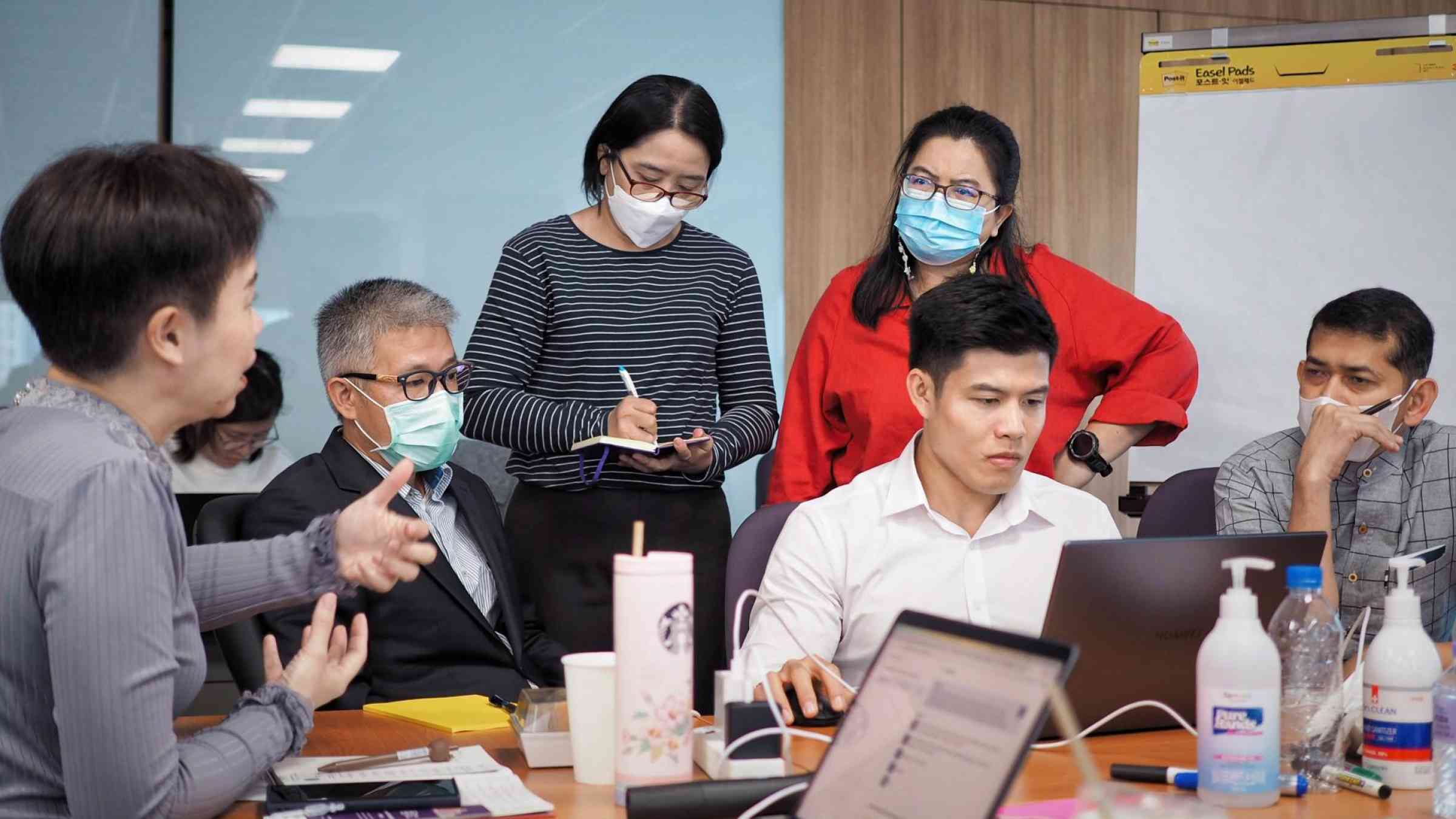Thailand Makes Strides in Urban Resilience with the ‘Making Cities Resilient 2030’ Initiative

Thailand has made considerable progress towards improving urban resilience through the ‘Making Cities Resilient 2030’ (MCR2030) initiative, a collaborative effort involving United Nations agencies, local governments, academia and other partners, under the lead of the United Nations Office for Disaster Risk Reduction (UNDRR). The initiative’s primary goal is to strengthen capacities for disaster risk reduction (DRR) and resilience at local levels, which contributes to the implementation of the Sustainable Development Goals (SDGs).
The first MCR2030 training took place in Thailand on 16-18 November 2022 in collaboration with UNDRR, the United Nations Development Programme (UNDP) Thailand and the Thai Disaster Preparedness Foundation. It focused on building urban resilience capacity among local governments and academia and clarifying their roles and responsibilities. The training, which was attended by 17 local universities, local authorities from Prik Municipality in Songkhla Province, Laem Phak Bia Subdistrict in Phetchaburi, Chon Khram Subdistrict in Surat Thani, the media, the army and other relevant stakeholders, introduced the Disaster Resilience Scorecard to help local governments identify gaps, challenges and localize the implementation of global frameworks such as the Sendai Framework for Disaster Risk Reduction 2015-2030.
Prik Municipality in the Songkhla Province in the south of Thailand – one of the provinces which focuses on SDG localization in Thailand – became the first Thai city to join MCR2030 in 2023. Subsequently, the Bangkok Metropolitan Administration also joined MCR2030 to bolster urban resilience capacity and integrate the Disaster Resilience Scorecard into the city's risk map. Overall, four cities in Thailand have joined MCR2030 since December 2022, committing to building resilience at the local level. After the initial MCR2030 training, the National Municipal Association of Thailand (NMT) expressed interest in adopting MCR2030 as a tool for local governments to build resilience, leading to city-to-city learning within the NMT network in collaboration with the United Nations.
The Deputy Governor of Bangkok, Assoc. Prof. Dr. Tavida Kamolvej, shared her thoughts on the training: "Bangkok’s resilience roadmap is strongly influenced by the city’s surroundings – and conversely, decisions made by the Bangkok Metropolitan Administration affect the city’s surrounding regions and institutions. This is why collaboration is crucial and we work closely with the National Municipal League of Thailand that has longstanding experience. This training that links all different actors is instrumental to building a network and sharing knowledge. We will use our common knowledge to make cities more resilient and thereby contributing to sustainable development in Thailand.”
Following the MCR2030 training, the cities will continue to use the Disaster Resilience Scorecard to assess their disaster resilience, structured around UNDRR’s Ten Essentials for Making Cities Resilient. A working group may be formed to contextualize the concept and tools for broader application, in collaboration with the Thai Department of Disaster Prevention and Mitigation and associations of municipalities like the NMT. The National Municipal Association of Thailand will advance the agenda by integrating disaster and climate resilience into its work and coordinating among municipalities in Thailand. Mahasarakham University plans to support and interlink the DRR, climate change adaptation and resilience agendas and serve as mentors for municipalities in the northeast of Thailand.
In January 2023, the Government of Thailand launched the National Disaster Prevention and Mitigation Plan 2021-2027. It incorporates the Ten Essentials for Making Cities Resilient, which underlines the importance of urban resilience in Thailand. Mahasarakham University will provide technical support in implementing this element of the National Plan, working with Kantarawichai Sub-district and Muang Mahasarakham Municipality, whereas Bangkok will also continue with the Scorecard assessment (its preliminary version) and plans to use the detailed version of the Scorecard to help identify more concrete actions to build resilience in the near future. The city has an ultimate goal to be in the top 50 cities in the liveable city raking.